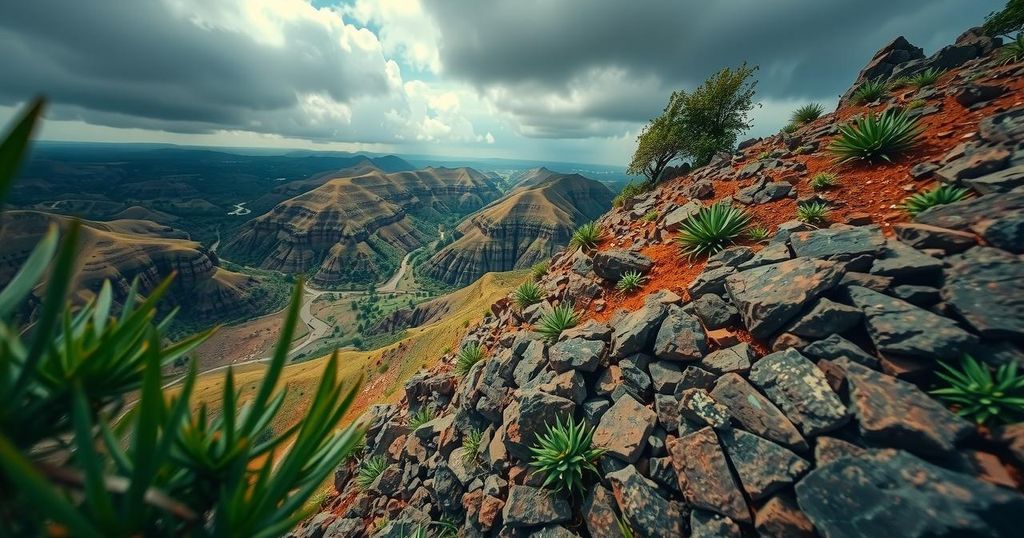Russia and Zimbabwe recently completed their inaugural joint geological expedition, focusing on the geological features of the Magondi belt. The mission involved collecting rock samples, making paleontological discoveries, and establishing two environmental monitoring stations at the University of Zimbabwe, marking a significant achievement in scientific collaboration between the two nations.
The first joint geological expedition between Russia and Zimbabwe has successfully taken place, involving participation from both local experts and students from the University of Zimbabwe alongside researchers from the Russian State University for Geological Prospecting. The focus of this mission was the Magondi belt in northwest Zimbabwe, which is known for its geological richness. The team not only collected various rock samples but also made significant paleontological discoveries, further enhancing scientific knowledge in the region. Additionally, this venture led to the establishment of two environmental monitoring stations, ECOGEOSCAN 1 and 2, at the University of Zimbabwe. These stations are poised to augment research initiatives concerning ecosystems and climate patterns within the region. Moreover, they represent a notable achievement in bilateral scientific cooperation between the two nations, fostering mutual understanding and collaboration in geological studies that may shed light on the historical evolution of the Earth’s crust in Africa.
Geological expeditions, such as the one conducted by Russia and Zimbabwe, play a critical role in understanding the Earth’s geological history and its environmental conditions. The Magondi belt, rich in geological features, presents unique opportunities for research. The collaboration between Zimbabwean and Russian institutions signifies a growing partnership that enhances both nations’ capabilities to conduct meaningful environmental and geological research. By establishing monitoring stations, this mission aims to contribute valuable data to the global scientific community.
The Russia-Zimbabwe geological expedition marks a significant stride in collaboration between the two countries, providing valuable insights into the geological and environmental conditions of the Magondi belt. The establishment of ECOGEOSCAN stations paves the way for enhanced environmental research, demonstrating a commitment to the scientific exploration necessary for understanding climate patterns and ecosystem changes. This partnership underscores the importance of international cooperation in advancing geological sciences and environmental monitoring.
Original Source: iafrica.com






